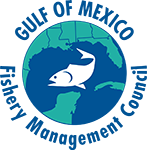
|
ISSUE DATE: May 23, 2024 FB24-034 CONTACT: Gregg Bray, 228-232-0404, [email protected] or Frank Helies, 727-209-5988, [email protected] |
Key Message:The Gulf States Marine Fisheries Commission, with support from NOAA Fisheries and other federal, regional, and state partners, is hosting a workshop to identify new, feasible ways to validate the accuracy of current recreational fishing effort estimates. The workshop will identify projects for estimating fishing effort from private recreational vessels that can be used to validate and/or replace existing approaches. Selected projects would be implemented in 2025 or 2026. The meeting agenda will be available on the Gulf States Marine Fisheries Commission website under Upcoming Meetings and the NOAA Fisheries event page. Where/When:Hilton Riverside, New Orleans (Two Poydras St., New Orleans, LA 70130), and virtual June 4 – 6, 2024, from 8 a.m. – 5 p.m. CT Why:Inflation Reduction Act funding has been allocated for the Gulf States Marine Fisheries Commission to host a workshop to improve recreational fishing effort estimates. These estimates represent one of the greatest sources of uncertainty in total recreational catch. With multiple recreational surveys (federal and state) in place in the Gulf of Mexico and South Atlantic, we have observed large differences in the amount of estimated recreational fishing effort between the various surveys. IRA funding will be used to address scientific and management uncertainty in recreational catch statistics for red snapper and dozens of other species. Our joint intention is to set the gold standard for validation and improvement of state and federal recreational data collection to provide better measures of catch, effort, and discards. This will benefit millions of anglers in the world’s largest recreational fisheries. The workshop will focus on reviewing existing approaches and methods for estimating recreational fishing effort; exploring new, non-traditional methods that could be used for effort estimation; and recommending priority research studies to validate and improve effort estimates. A draft work plan will be developed to fund projects throughout the Southeast in 2025 and 2026. Contacts:
|
